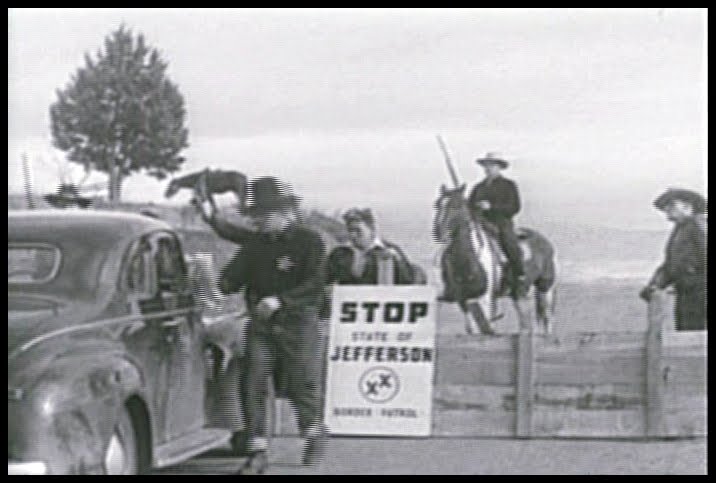What Happens In Prison Anyway?
I have had some awfully difficult patients lately. Males, in their early twenties, who misbehave and ignore all known authorities including me, and often tell me they will not take any “stinking” pills no matter what, and tell me to go do obscene things to myself. (I am old enough to know how and when to do the latter without their instruction.)
I felt silly that they bothered me, since I have actually had some success working with some very hardened criminals who have murdered folks and done some pretty heinous things. As a matter of fact, such folks usually like me. I actually remember from my prison work one cell block I often visited in person, where I earned the nickname “Mary Poppins” — for it was hot and I wore a hat tied with a scarf to fight the sun and the desert wind.
Even after the hat and scarf were determined to be a breach of prison security (since they covered my face and represented a potential method of disguise and flight for the inmates) they still called me “Mary Poppins” and broke into “A Spoonful of Sugar” whenever I entered the cell block.
Granted the inmates had few amusements, but I still think they liked me.
Sometimes, even with all my Herculean mental efforts, my best insights come from my husband. Brilliant in aspects of his mind other than his excellent taste in women, he explained to me that the young toughs who came to my clinic and treated me so poorly were simply “pre-prison,” and had not yet dealt with the consequences of their actions. Brilliant, and I believe, correct.
As a former prison doctor, I was more inclined to read a recent story about the effort to reduce state prison populations by turning low-level offenders back to county facilities. But this is the kind of headline that suggests there is something going on that is not at all what the story is about.
Counties and state government in California are not really in an adversarial relationship. It is just that nothing works terribly well, which is no shock to anyone who has lived in California for a bit.

Rugged individualists in Northern California and Southern Oregon have wanted to form their own state of Jefferson for the past 70 years.
As far back as 1945 the folks in Northern California (along with Southern Oregon) wanted to secede because their agricultural interests made them feel
they were different enough from the rest of California. Some devised a plan to become the State of Jefferson, with flag with “XX” in circles to show that they had been “double crossed.” Some people are still so angry about this they call the region “Jefferson,” and pout all day and refuse a physician’s request for urinalysis because it violates their personal property rights.
Take it from a woman who actually practiced psychiatry in the “State Capital” of Jefferson for a bit and knows these things.
Back to California prisons — I avoided them as an employment option at first, but later found that there were plenty of openings for psychiatrists in what is called the California “Department of Corrections.” Additionally, the pay a lot better than the county mental health system.
I actually ended up working several of them. I did not realize until I heard some gossip years later that there was some kind of a secret agenda that having women working prisons (all the available jobs then and most of the institutions in general are for males) would discourage males from homosexual activities.
I don’t think I ever did that. But then again, I am not very sure anyone got “corrected.” I mean, the process of penologic “correction,” if there is one, should not be described with the same word used to grade 9th grade Algebra tests. (I once was a substitute schoolteacher and actually did that one.)
Even psychologists who specialize in this field seem to agree there is all too little science to go on.
Perhaps the most accurate description of what incarceration is supposed to do that I have ever heard came from a world-weary senior psychologist who was leaving the system. He said that incarcerating people physically put them in a place where society could be comforted, they were out of circulation for at least a little while.
The idea of having programs to help them cope with the pressures of society, which still include attempting to earn a living, is still a dream as far as I am concerned. Several programs, like workshops in optics or auto body or plumbing, were ended because of lack of funds while I was still in the system.
As for the question of the presence of females in the strange male-dominated society behind prison walls; well, that one is hardly resolved.
One of the greatest compliments ever made to me was the prison official who told me that I was such a good physician that I was the only female working behind (male prison) bars he had ever known who was certainly NOT there because of an affirmative action program.
Curiously enough, the ideas such as moral righteousness and separation from the public seem to dominate the rules more than any ideas of actually “correcting” people.
Why else would masturbation generally be considered illegal in prison?
Incidentally, this article does explain at least one reason why there are so many female guards in the prison system — they can “pat down” members of either sex, while men are not permitted to pat down females.
I did once personally see a gay male psychiatrist palpate the arm muscles of an inmate to see how his “workouts” were going.
Oy!
One female social worker whom I had considered “tough” and actually somewhat skilled, I later found out had been dismissed since she was caught red handed (?red vagina-ed?) having sex with a prisoner.
Double Oy!
Back to this same male-dominated subculture –There is a pecking order. There is thriving criminal activity. I know for sure that any drug you can imagine is available behind bars. There is an almost-unbelievable method of transferring such things.
The floor of the aisle separating rows of cells resembles a fishing pond (with no water, of course). People cast their fishing lines (strings) to other inmates who attach envelopes full of contraband, which are then reeled-in across the floor between cells, slipping under the bars.
And although no inmate is allowed a cell phone (staff can’t even carry a phone while on-duty), they are plentiful and used to coordinate activities both inside and outside the prison.
Do you think the guards don’t know about this? Only the blind and deaf ones, perhaps – and I doubt that equal-opportunity employment extends to deaf-dumb-blind guards.
Elaborate rings of women bring in prescription or street drugs, cell phones and who-knows-what else, leaving them at agreed-upon drop off places during conjugal visits.
Again – you think the guards don’t search visitors before letting them in? How else could this type of activity exist without collusion both within-and-without the facility?
Actually, relatively few criminals seem to me to have bona fide psychiatric diagnoses, although actually they do run some very clever schools to teach each other to imitate symptoms.
I’m sad to say that some of my colleagues are not sharp enough to detect this (More than once, I have been called a “human lie detector”). Others are so burned out or just uncaring that they let anybody have prescriptions. (I will not accuse any doctor of being bribed – innocent unless proven guilty works for them as well).
Criminality seems to be more of what we generally consider a personality trait than an “illness.”
Sadly, prisons have become California’s de-facto mental institutions since the state decided to close most of the mental hospitals as a waste of money (obviously during a Republican governor’s administration *Cough*Cough*Reagan). After all, certain elements of tax-paying society know that there is no such thing as mental illness and it is just a bunch of slackers taking up valuable resources.
But that is another rant for another blog post – although it is easy to show that taking care of mentally ill patients in a public mental health facility is much cheaper than housing and caring for them as prisoners.
Just sayin.’
OK — back to the report initially cited. There is certainly a lot of crowding in prisons — far more inmates are there than anyone could have imagined. Government agencies can blame each other from today ‘til tomorrow. Crowding in human abodes has long been known to be deleterious to human mental health.
The most credible reason cited in this article is (paradoxically) the shortening of prison sentences in an effort to relieve crowding. Prisoners, once released, tend to commit more — and often similar — crimes and to end up back in prison.
Prison is brutal and miserable and it is possible to argue that nobody deserves this kind of punishment (because that is really what it is – rather than “correction” or “rehabilitation”) whatever they may have done, especially since the idea of “correcting” people seems to be vague and unscientific at best.
There is one apocryphal experiment I heard about long ago, but I only discovered recently was masterminded by Philip Zimbardo, PhD, a highly respected Stanford psychologist.
Basically, student types without a reason to be either, were divided into prisoners and guards and instructed to play-act these roles. The results were so brutal the experiment was stopped.
The world being what it is, you can see excerpts of this experience on You-tube. The system needs deep overhauling.
I want to believe there is an answer in neurophysiology. The idea of such a system makes me think of Steven Spielberg’s Tom Cruise Sci-Fi movie “Minority Report” — a scenario that would give a science phobic public a lot to get angry about.
Still, as in so many sectors, we need to move towards something that is dominated by science more than politics and fears.
Filed under Prisons by on Mar 11th, 2014. ![]()


Leave a Comment